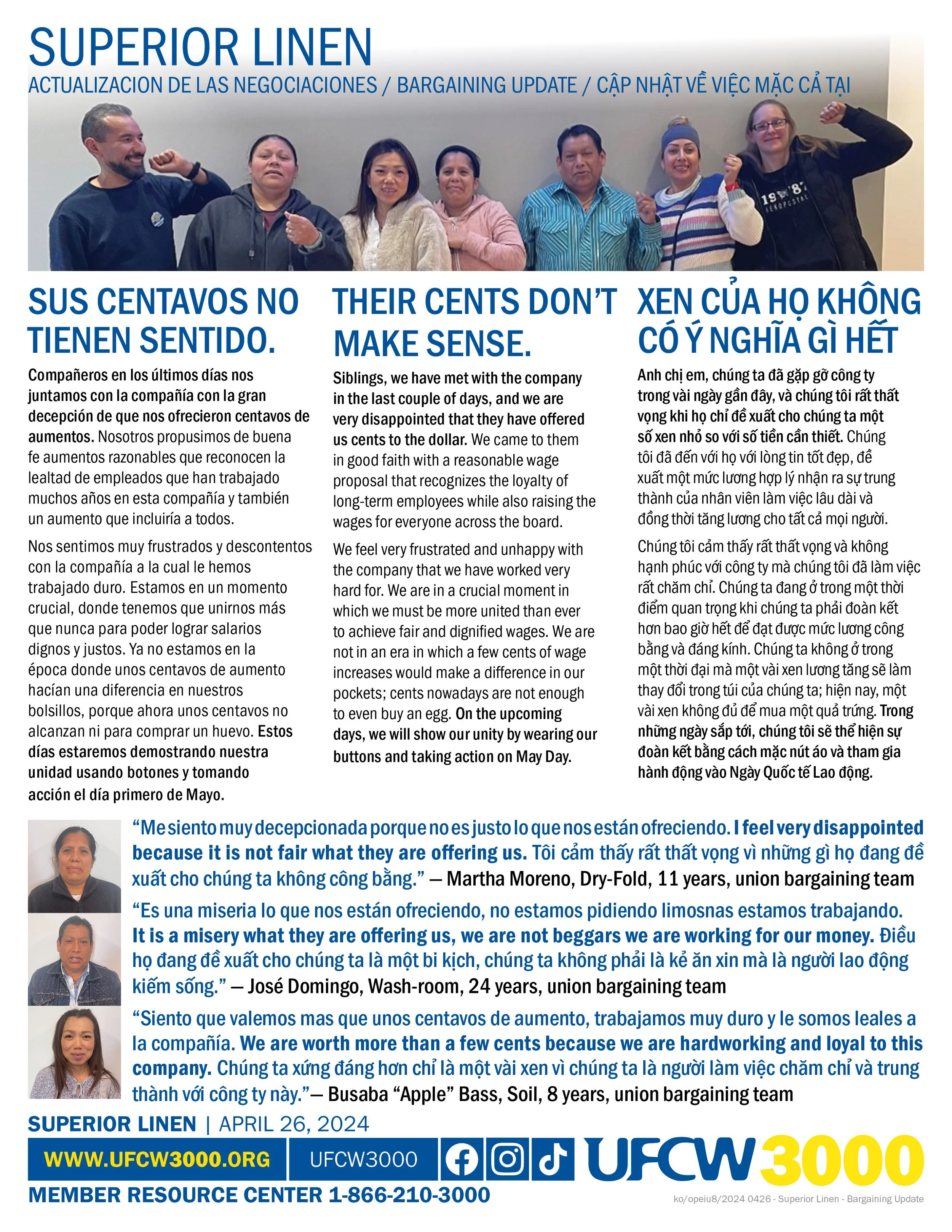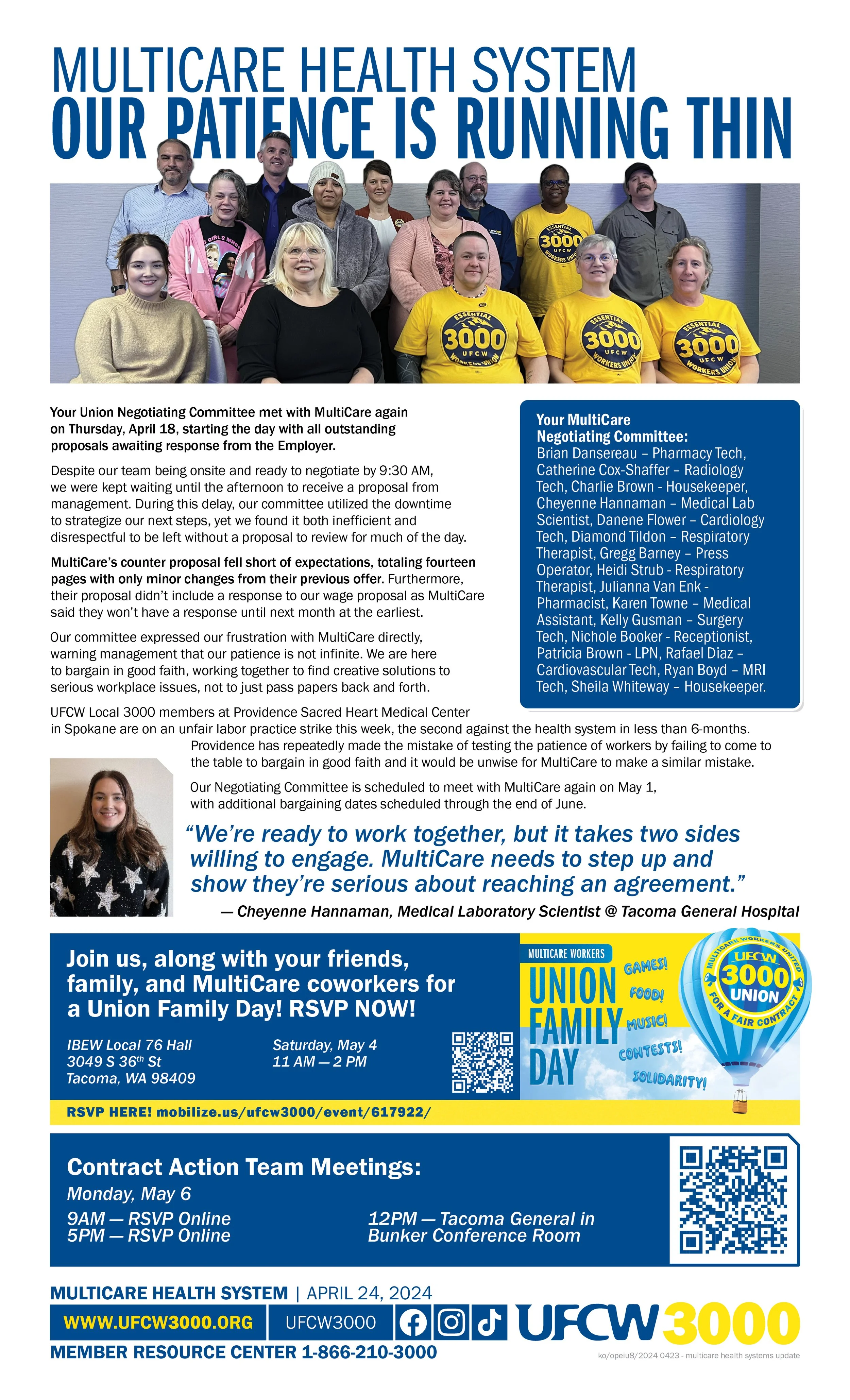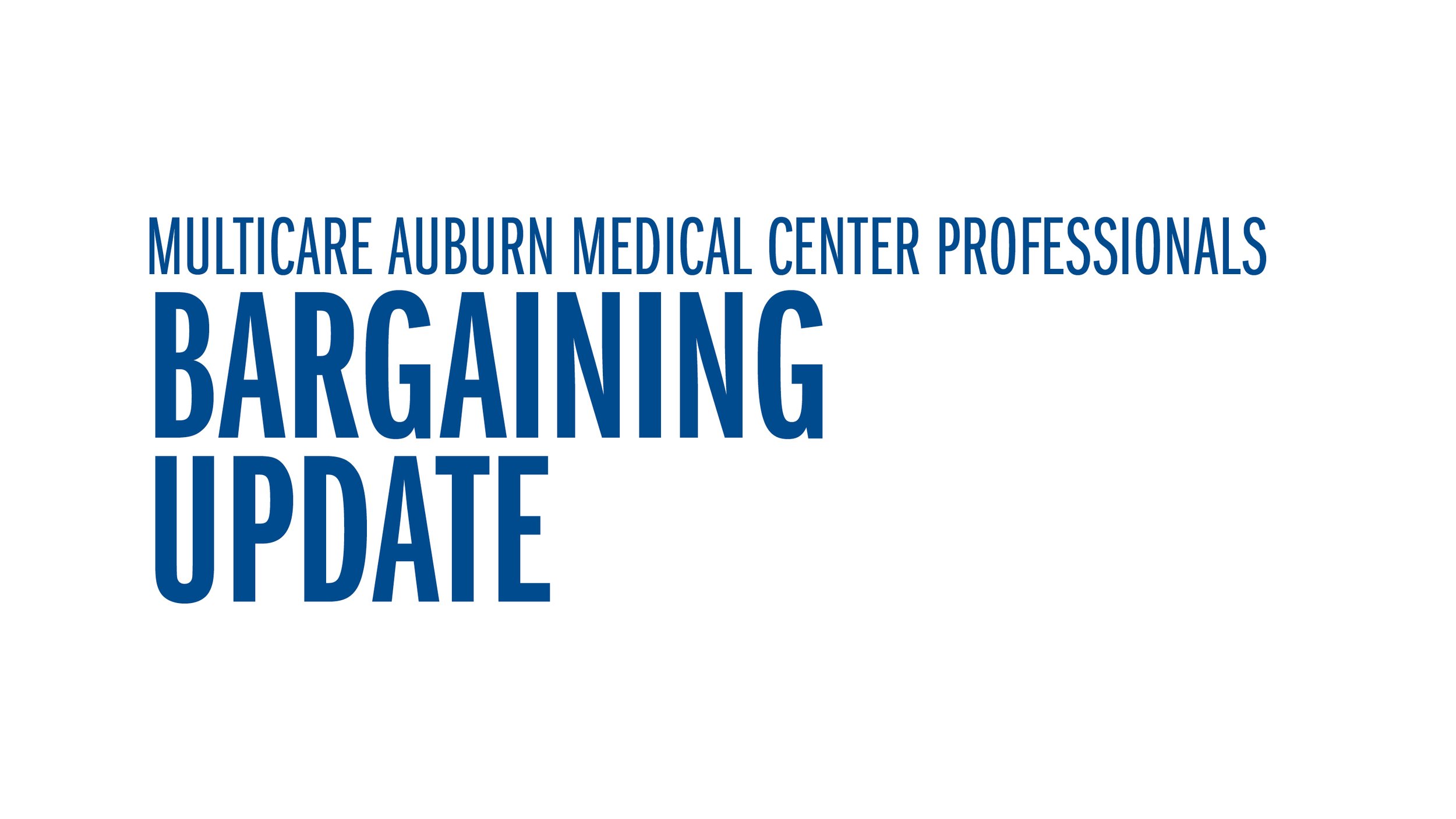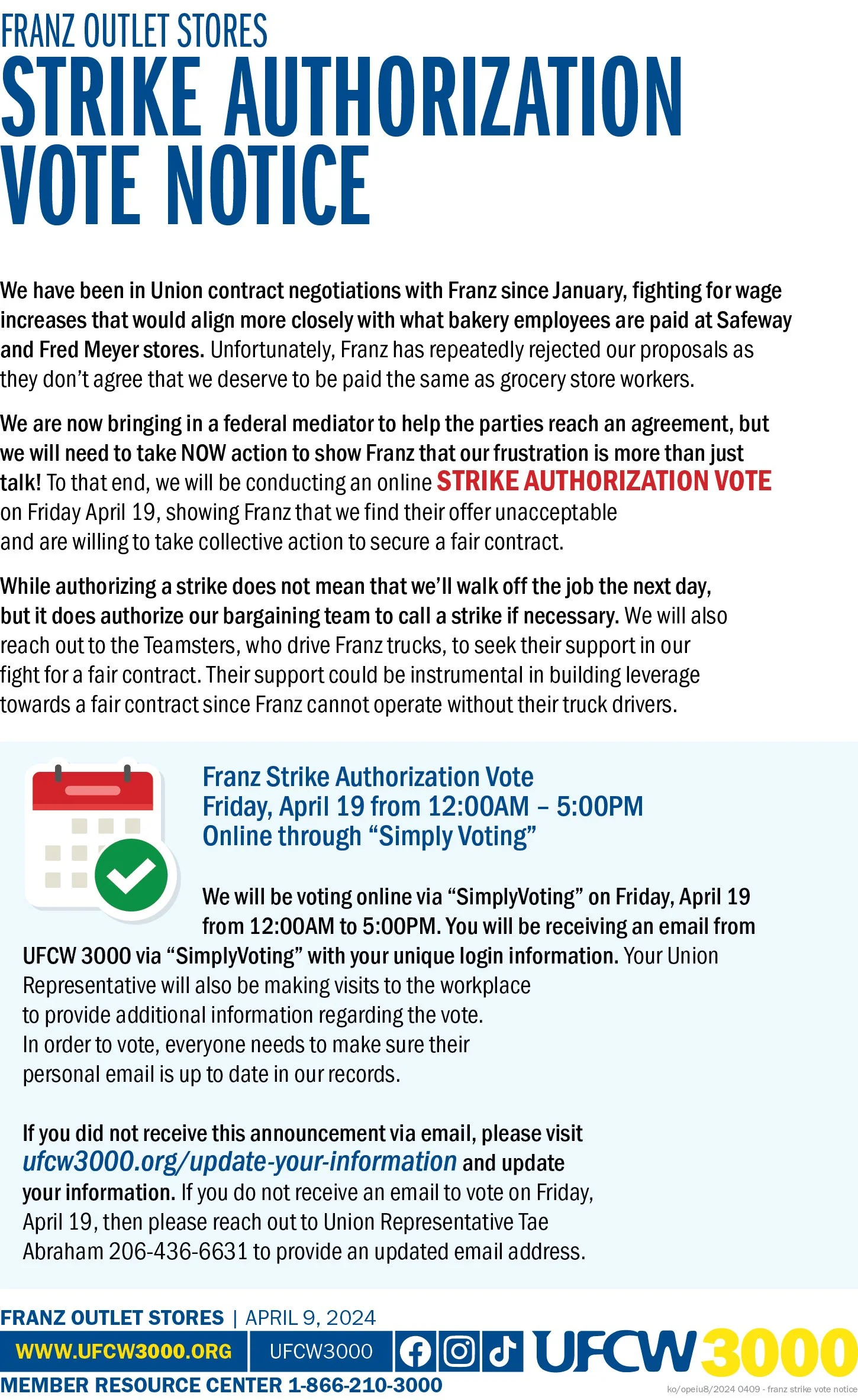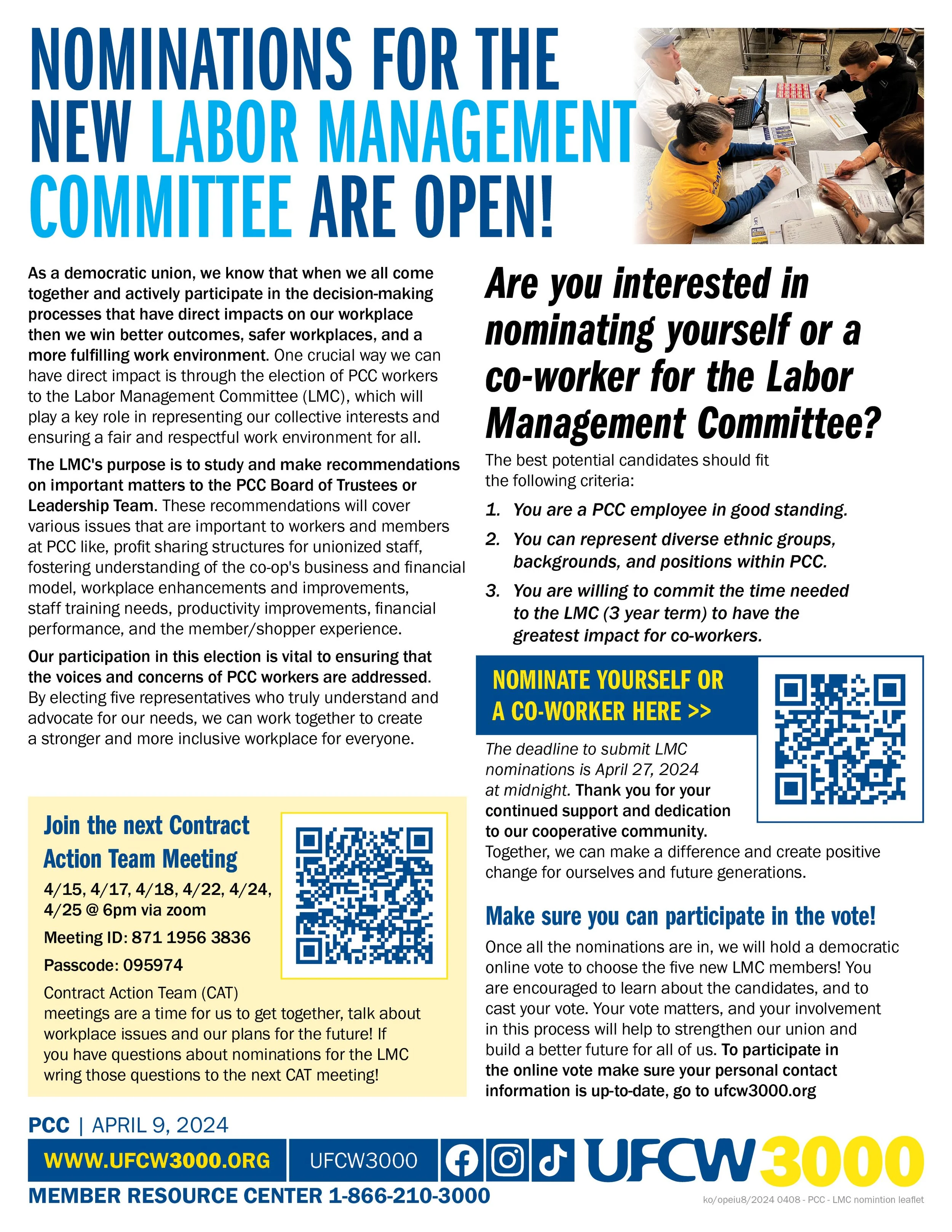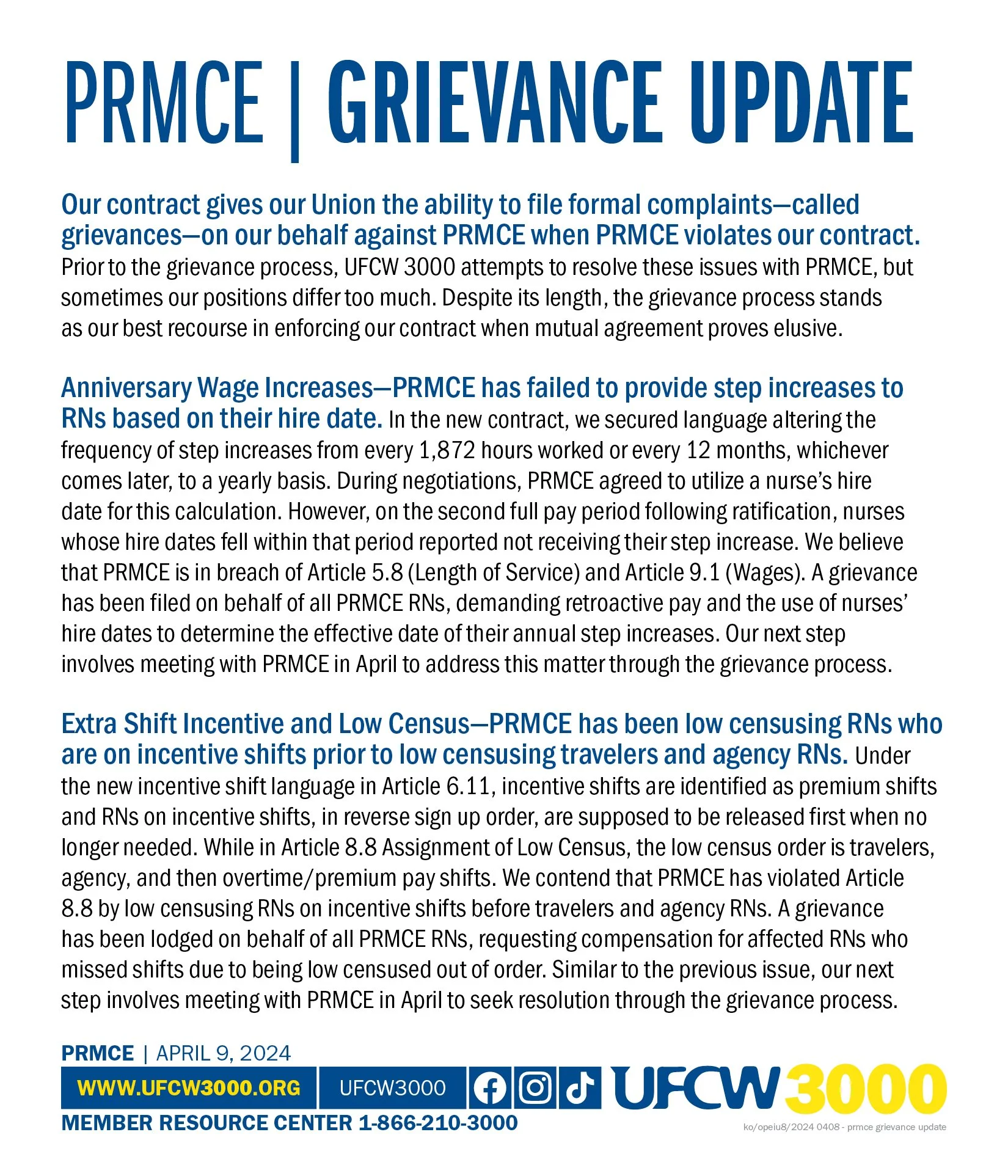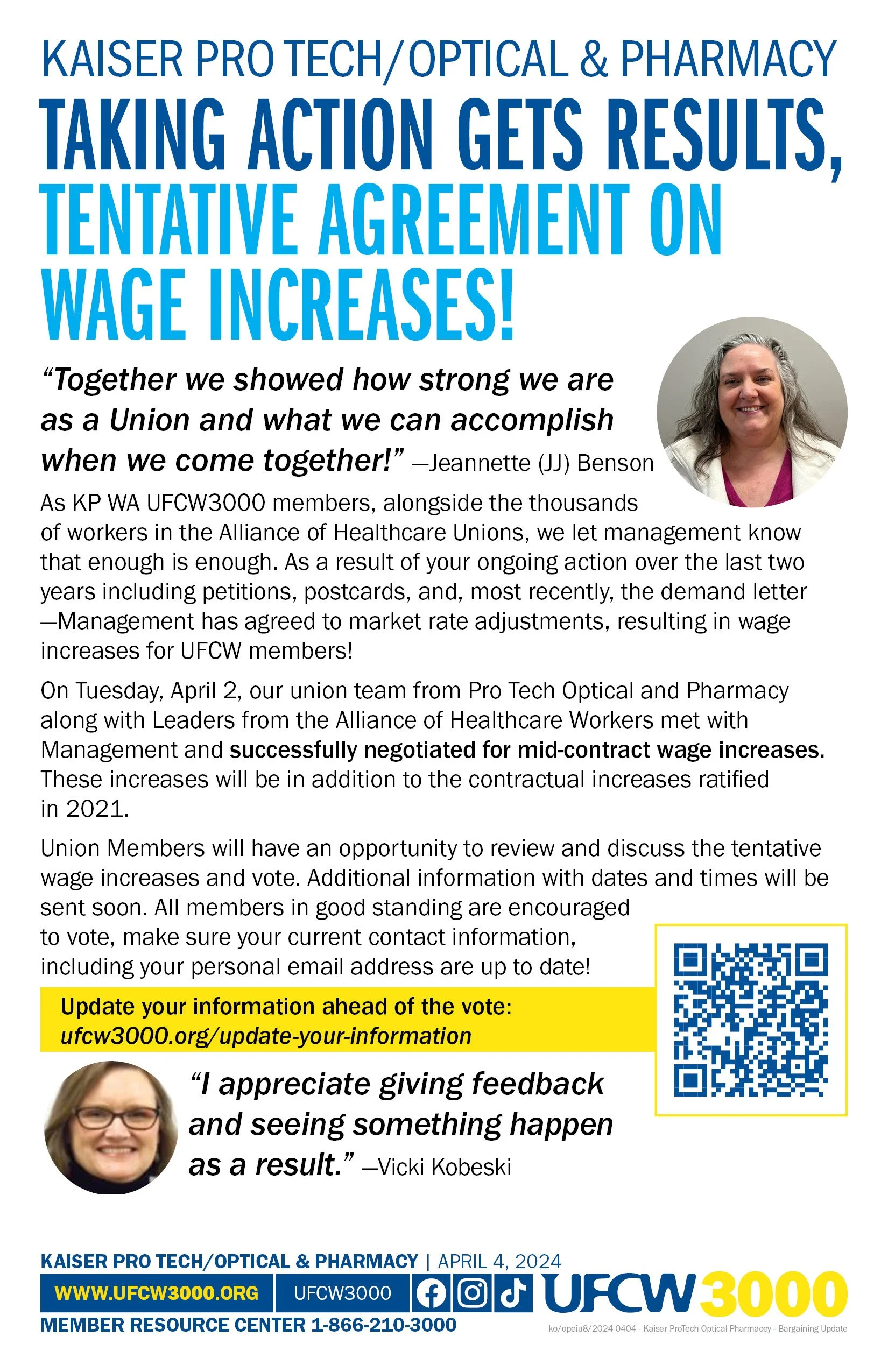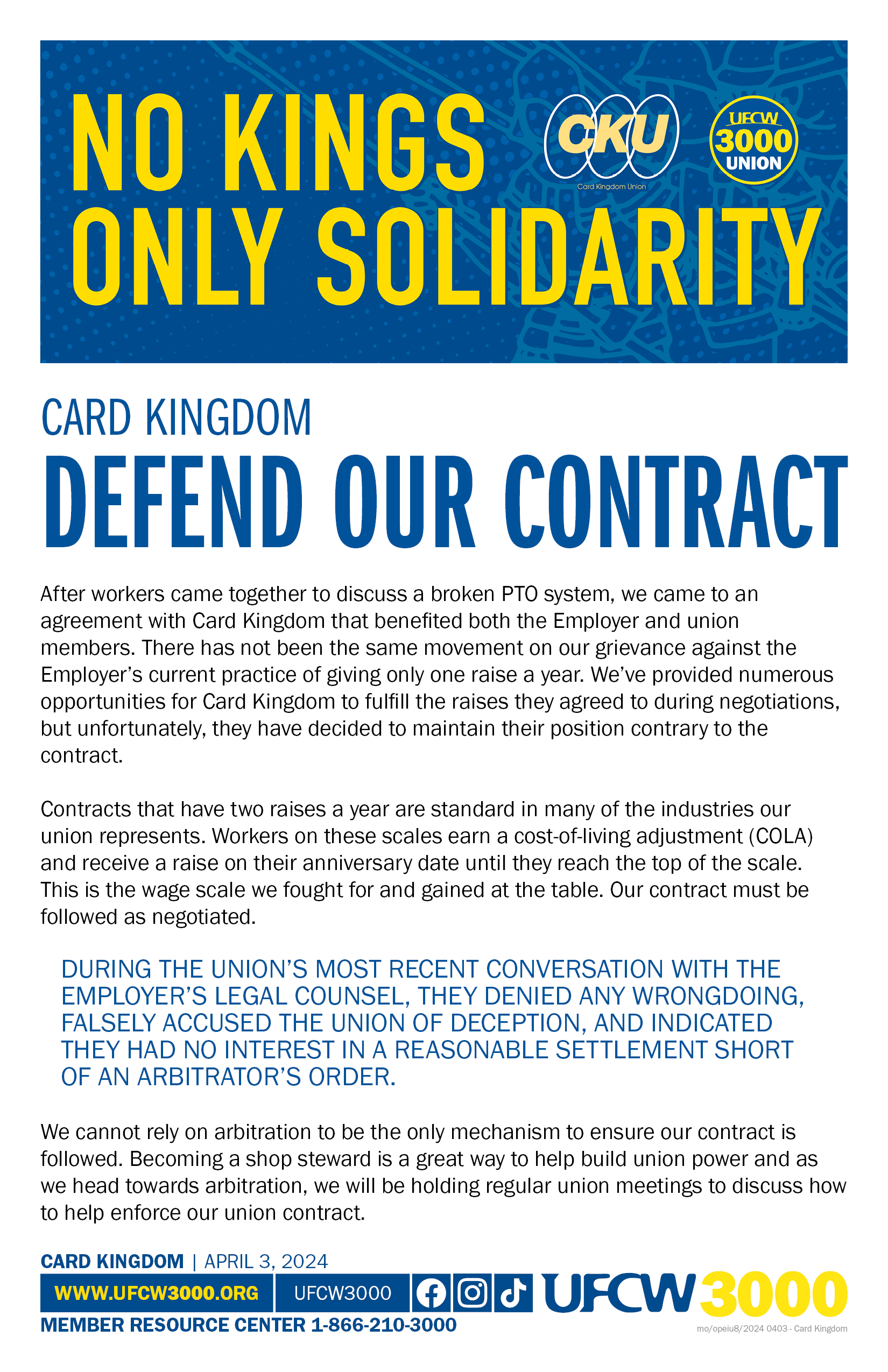Public Health Recommendations to Minimize the Spread of Novel Coronavirus (COVID-19) in Retail Food Establishments.
/These are guidelines from Public Health – Seattle & King County for retail, food, and grocery businesses and workers. If you would like to report safety concerns at your workplace, please speak with your Shop Steward or Union Rep, or email safetyreport@ufcw21.org and include where you work, your safety concerns, and how best to contact you.
March 16, 2020
As of March 16, 2020, King County has updated their guidelines for retail and grocery stores as follows.
Please note: The “retail” guidance seems to have been incorporated into the general essential businesses guidance here: https://www.kingcounty.gov/depts/health/covid-19/workplaces/retail.aspx
The COVID-19 prevention measures and mandatory actions for retail establishments:
Based on CDC guidance and Governor Inslee's Proclamation these establishments must observe the following COVID-19 prevention measures.
Retail establishments must align with COVID-19 prevention measures as follows:
Older adults and individuals with underlying medical conditions that are at increased risk of serious COVID-19 are encouraged not to attend (including employees).
Suggestion: Take specific steps to encourage older adults age 60 and above and those with underlying health conditions not to attend. For groceries, banks, and other essential establishments, consider implementing dedicated times exclusively available for highly vulnerable populations.
Social distancing recommendations must be met (i.e., limit contact of people within 6 feet from each other for 10 minutes or longer).
Suggestion: Establishments should ask themselves: how close will people be and for how long? Ensure that your business is organized in such way to avoid close contact between people. Washington Department of Health advises that “being within 6 feet of a sick person with COVID-19 for about 10 minutes” constitutes close contact which could result in exposure.
Employees must be screened for coronavirus symptoms each day and excluded if symptomatic.
Suggestion: Have a plan to screen employees or volunteers every day. CDC guidelines identify the key symptoms to watch for as fever, cough and shortness of breath.
Signage should discourage attendance for any person who has these systems.
Proper hand hygiene and sanitation must be readily available to all attendees and employees.
Suggestion: Provide ready access to hand sanitizer and hand sanitizer stations and request employees and customers to abide by personal hygiene recommendations. CDC recommends that people wash their hands often, and if soap and water is not readily available, use hand sanitizer that contains at least 60% alcohol, and to avoid touching your eyes, nose and mouth with unwashed hands.
Environmental cleaning guidelines from the U.S. Centers for Disease Control and Prevention (CDC) are followed (e.g., clean and disinfect high touch surfaces daily or more frequently).
Suggestion: Ensure a clean and sanitary environment. Have employees disinfect frequently-touched surfaces such as doorknobs, tables, desks, and handrails. CDC provides detailed environmental and disinfection recommendations.
Additional guidance that retail establishments must adhere to:
Based on CDC guidance, retail and service operators should adopt the following practices:
Encourage staff who can to telework
Consider the following measures to achieve social distances requirement
Spacing workers at the worksite
Staggering work schedules
Decreasing social contacts in the workplace (limit in-person meetings)
All break areas must accommodate distancing
Reducing the capacity of customers
Strive for flexible leave policies for staff who need to stay home due to school/childcare dismissals.
Place posters and other signage that encourage staying home when sick, cough and sneeze etiquette, and hand hygiene at the entrance to your establishment and in other nearby areas where they are likely to be seen by customers and clients.
Provide disposable wipes to ensure frequently used surfaces are cleaned.
Each retail establishments must have a lead employee to ensure compliance with this guidance.
Specifically in grocery stores:
Apply the social distancing recommendations to any lines that form inside or outside of the store
Prohibit self-serve foods, including hot bars, cold bars and buffets.
Prohibit product sampling
Appoint a designated sanitation worker at all times to continuously clean and disinfect frequently touched surfaces and meet the environmental cleaning guidelines set by the CDC.
March 5, 2020
Food has not been identified as a likely source of COVID-19 infection at this time; however food businesses can play an important role in both protecting their employees and their customers from coronavirus infection by following the below personal and environmental hygiene practices.
Stay home when you are sick with fever, coughing, and sneezing.
Wash your hands thoroughly with soap and warm water for 20 seconds upon first arriving to work, after using the restroom, before and after eating and frequently throughout the day. Avoid touching your eyes, nose or mouth.
Provide alcohol based (60%) hand sanitizers for use for both employees and customers by placing them at convenient/accessible locations.
Use sanitizing solution (i.e., one teaspoon of unscented household bleach in a gallon of cool water) to frequently sanitize commonly touched surfaces and objects such as electronics, door knobs, faucet handles, counter tops, cash machine key pads, dining tables frequently throughout the day. Change the sanitizing solution at least once every four hours.
Consider temporarily limiting self-serve operations. Examples of such operations include; salad bars, buffets and dispensers. Replace utensils frequently (approximately hourly) during peak use hours for self-serve style operations.
Ensure dishwasher and/or three –compartment sinks are used properly and have the appropriate level of sanitizer for final rinse (50-100 PPM chlorine based sanitizer, follow product label for other approved sanitizers).
Ensure sneeze guards are in place where required.
If you have food employees at higher risk for coronavirus with underlying health conditions, such as people 60 or older, people with underlying health conditions (heart disease, lung disease, or diabetes) or those with weakened immune systems or those who are pregnant: consider temporarily assigning them to non-public-contact duties.
If you are a food business owner or a food worker and have questions related to your operation please reach out to your Health Investigator or call 206-263-9566 to speak with office staff. For the latest information, please visit the following site: https://www.kingcounty.gov/coronavirus



